Tom Tikka picked up the guitar at the tender age of six after hearing Paul Anka’s “Lonely Boy” in his father’s old Chevrolet. Soon afterwards, he began writing songs. Tom’s infatuation with music only deepened after his aunt’s husband introduced him to the concept of lead guitar and even more importantly to the music of such legendary groups as The Beatles and The Doors. Tikka formed almost as many groups as he disbanded in his late teens and early twenties. Yet, when he finally signed his first recording contract on his 21st birthday, it was a solo deal and not a band effort. He recorded a three-song EP for Olarin Musiikki, a small indie label in Espoo (Finland), under the alias of Tom Spark. Unfortunately, the EP disappeared as quickly as it was released. Consequently, Tikka found himself in square one, without a band or a record deal.
Disappointed, Tikka withdrew from music for a few years but began writing songs again once his brother Lappe Holopainen suggested that they form a songwriting team. Lappe had founded a group he was convinced would go far and he needed tunes for his new outfit. This group was Carmen Gray. Carmen Gray was signed to Sony/BMG in 2005 and during the next nine years, they went on to record three albums and one EP. The group’s entire catalog (including such radio hits as “Lost In My Mind Again”, “Gates Of Loneliness” & “Life Can Be Beautiful”) was penned by Tom Tikka & Lappe Holopainen.
After Carmen Gray disbanded in 2013, Tikka formed his current group The Impersonators with poet Antti Autio. In 2017, The Impersonators signed with FBP Music Group, a German label based out of Frankfurt. Together with their producer Janne Saksa, The Impersonators have released tunes to rave reviews and a considerable amount of radio attention. In 2020, Tikka began working with MTS Records and released a solo EP titled “Working Class Voodoo” under the name Tom Tikka And The Missing Hubcaps. On this self-produced venture, Tikka plays and sings everything himself. It featured the UK iTunes chart hit title single. On July 31, 2020, Tikka & The Hubcaps released the “Insane” EP on MTS Records. Following the global success of his Christmas classic, “Just Like Xmas (Love Is War),” Tikka released the “That’s What Winston Churchill Said” EP in January 2021.
- Do you feel that your music has given you back just as much as you have put into it over the years, or were you expecting something more or different?
Tom Tikka: Well, all I ever wanted was an audience that nods their heads to what I’m doing and an opportunity to make records. The fact that I’m still making the iTunes and radio charts is a very nice plus. It’s humbling that the new EP has produced two Top 5 iTunes hits. “Jaded Mind” (#4) and “That’s What Winston Churchill Said” (#3). I owe it all to Michael Stover, of course. He is a whiz at PR and music management.
- How would you define the word “success” as a musician? What does “success” in music mean to you personally?
Tom Tikka: When I was in my twenties the word “success” equaled “world domination”. When I think back to that nowadays I laugh. Right now, I define success so very differently. I think if you are happy and satisfied with whatever it is you are doing and you are motivated to grow as a musician as well as an individual, you are very successful indeed. Material success, whether that be money in the bank or gold records on the wall of your studio, is fleeting. Nobody can go on being the most popular musician until they croak. Aging and the ever-changing trends will stand in the way of that. However, a person can be happy still on his deathbed if they’ve made right personal choices. I’ve seen it.
- The music industry has fundamentally changed over the years. For the better or for the worse in your opinion?
Tom Tikka: It’s hard to say. My gut instinct tells me it’s changed for the worse with all the shows like Idols and The Voice. However, the music business has always had that side to it. There were always talent contests and there were always pop stars that were styled by record labels to meet the prevailing trends. It’s just that for a brief while in the sixties, rock bands took over the whole game and this happened again in the early nineties. The former was my parents’ era and the nineties was mine. I was lucky because those were probably the two best periods for pop/rock and I grew up listening to one and got to experience the other. No wonder modern pop music sounds too synthetic, calculated and generic for my taste. This is just my biased opinion. I’m not presenting any of this as the almighty truth.
- Do current popular songs from the radio influence your music, creative approach and/or production decisions in any way?
Tom Tikka: Not really. If I hear something I really like it might inspire me to write a certain type of song but that happens very rarely. I usually just pick up the guitar and start writing. I’ve always approached music like a job. Hence, I write every day. In terms of production, it’s the same thing. I’m influenced by the sixties and the nineties and the great record producers of those eras, not really what is happening now. Also, I’ve never really liked conscious copying, which is what a lot of trendy producers and professional songwriters are doing and have always done. Don’t get me wrong, I get it. You’ve got to first examine how houses that sell are furnished and styled to be able to sell your own house. How else could you do it? This way of working just doesn’t gel with who I am.
- What’s your favorite ‘guilty pleasure’ song? One that’s as far removed from your genre as we could hope to guess?
Tom Tikka: Well, I might have a genre as an artist but not really as a music enthusiast. I listen to everything. A few days ago, I listened to Beethoven’s Symphony No. 2 and yesterday, I listened to Dave Brubeck and Oasis. Tomorrow, I’m planning to listen to Merle Haggard and hopefully, I’ll also have time for some Robbie Williams. Right now, I’m listening to Gordon Haskell. I have a few thousand CDs. However, my guilty pleasure music is ABBA. I love those songs, almost all of them. They have zero street credibility and even though I’m not always crazy about their arrangements or production values, I love their songs. Benny and Björn were outstanding songwriters. In fact, I love their tunes so much that I own all the ABBA albums regardless of the fact that I usually don’t even go for female vocals. Having said that, The Bangles are amazing, so there are a few exceptions.
- Putting aside the accolades or criticisms that fans or the media may afford your releases, what’s the one thing about your music you think people overlook or misinterpret most often?
Tom Tikka: I think both fans and critics alike have always gotten what I’m about pretty accurately. If my stuff is reviewed by a critic who is looking for something different, then obviously he’ll find a few unflattering things to point out. I don’t necessarily disagree with those reviews at all. It doesn’t mean they didn’t get me. It usually means that they knew exactly what I was trying to do and just had very little appreciation for it. I usually see what they are getting at. We all have our preferences. I do too. However, I’ve gotten so many great reviews and plenty of accolades during my career that I’m both very humbled and very grateful. I suppose the only thing that people usually misinterpret is what I’m like as a person. My lyrics are rather dark quite often, so it’s assumed that I’m cynical. However, I’m not. I’m the biggest romantic you’ll ever meet and I’m also quite gregarious as well, I’m told.
- Do you have a particular hobby or activity outside of music that you use to rejuvenate your creativity or inspiration?
Tom Tikka: I work out three times a week, which is a great stress relief. Other than that, I have six kids to keep my mind off music. I’m not sure how much my kids help me recharge my batteries though. It’s usually quite the opposite. I’m only kidding. I spend most of my time with my two youngest ones, who live with me. I missed out on my older kids’ lives a bit being busy working or making music. Now I prioritize my kids. I work on my music at night after the family has gone to bed.
- Name us a band or musical artist you love, that you think we probably haven’t heard of (but definitely should hear)?
Tom Tikka: I’ll name a few: The River Detectives, The Go-Betweens, The Bathers, Rialto, A Girl Called Eddy, The Smithereens, The Silver Seas, Rooney…I could go on but I won’t.
- What drives you day after day, more than anything else, to continue pursuing your musical career?
Tom Tikka: The fact that I love music. I fell in love with playing, singing and writing songs when I was six and it’s a love affair that continues to this day. I don’t know how to stop, I don’t want to stop. It’s the most fun thing in the whole world. I don’t know anything better than writing and recording. I can’t tell you how many dates I blew off my in my teens just so I could finish a song. I feel awful about that now and I’m not proud of what I did but it’ll give you an idea about my relationship with music.
- What do you think about, when selecting tracks for an album? Do you try to curate for a specific overarching and cohesive theme, or do you lean towards putting together the best sounding tracks you can?
Tom Tikka: Well, usually I just go for the best sequence of the best sounding tracks. Everybody releases singles nowadays rather than albums or EPs anyway. The solo EPs I’ve released have been sequenced so that one track leads into another smoothly. The Impersonators’ upcoming album will most likely be a bit of a concept album where the lyrics tell a story of this fictional character called Grant. This is the way it was intended but the album could also work as a collection of songs. However, I like the fact that Antti and I have made a rock opera of sorts, so I’m guessing we will release it as a cohesive whole with a digital booklet that includes a short essay explaining who Grant was and what the story is all about.
- If you were forced to choose just one song by your favorite artist that you wished you had written, which song would it be, and why?
Tom Tikka: “I Am The Walrus” by The Beatles. It isn’t called Lennon’s eighth symphony for nothing. It’s a brilliant pop/rock song and a fantastic record. I adore it.
- Do you typically test your new tracks in live performances prior to an official release, or do you go with your instinct?
Tom Tikka: I always go with my instinct and my label head Michael Stover’s gut feeling. Michael’s also the executive producer on my solo releases, so we bounce ideas off each other in the production phase as well.
- The incredible immediacy of digital download platforms, or the nostalgia of hunting down a vinyl album in a brick and mortar record store? Which of these excites you most and why?
Tom Tikka: The latter simply because of the nostalgia. I remember the amazing feeling of buying a vinyl from one of those brick and mortar record stores as a kid and taking the bus home. In those days, you didn’t have streaming platforms, so you had no idea what you had bought until you got home and played the record. I’d be looking at the cover art, wondering what the songs would sound like, waiting anxiously to get home, seconds would feel like minutes and minutes would seem like hours. I love those memories. I’ve got to stop…I’m tearing up.
- Releasing albums vs. singles is the big argument of today in the music industry. Does it actually matter to you?
Tom Tikka: I suppose it doesn’t really matter to me. I like releasing singles and I like releasing albums. The thing that’s nice about albums is that they offer more than just one song and they can have a more cohesive story or a theme. However, they are costly to produce. If you are working on ten tracks at a time, it’s a bit pricier than working on just one, isn’t it? When I listen to music, I listen to albums. However, that’s most likely because I’m old school. My kids listen to songs rather than albums or artists. I do the opposite. For me, to like an artist, he or she needs to have an album I dig – one song is not enough. Different strokes for different folks. I like both.
- Do you think it is important for fans of your music to understand the real story and message driving each of your songs, or do you think everyone should be free to interpret your songs in their own way?
Tom Tikka: I think my songs probably mean different things to different people and that’s exactly how it should be. Why I wrote something is one thing; how fans experience it is quite another. Sometimes people want to know what inspired a tune and sometimes they don’t. It really depends on the person. I once got an email from this Italian girl, saying that “Burning Blue” by The Impersonators had helped her get over a messy breakup. Even though the song’s about a close friend losing his wife to cancer, I could definitely see how somebody might think of it as a breakup song. I was very touched by that email. Something that Antti and I had written in Helsinki had made a difference for someone thousands of miles away. There is no better compliment than that.
- What’s the most exciting part of the process of putting a new song together for you?
Tom Tikka: The part where everything’s recorded and you know it sounds fantastic. Then you start adding little bits here and there. There’s no pressure anymore. The song will turn out great no matter what. This is the moment I love the most.
- Have you ever stepped completely and unwillingly outside of your comfort zone, vocally or musically to accommodate the desire of an arranger or music producer etc.? If so, do you consider it a positive or negative experience, and why?
Tom Tikka: Yes, many times. I won’t get into when and with whom but I’ll say this, I will never do it again. You need to do these things to get ahead in your career and to learn the trade but I’m glad I’m done with all that. To be honest, I don’t really look back on those collaborations as negative. They just weren’t in synch with what I wanted to do and as a result, I don’t really like the songs or the productions. But as I said, I benefitted from all of those collaborations a great deal, so I don’t want to be too negative about having to compromise or accommodate. I wouldn’t change anything.
- Regardless of genre, which basic qualities does a song need to possess to qualify as a “good” song in Tom Tikka’s playlist?
Tom Tikka: I’ve been asked this before and I don’t really have an answer to this question. I suppose I go for meaningful lyrics, organic arrangements and strong melodies. I’m not genre sensitive. This is a tough one to answer. You see I don’t make playlists. I listen to CDs and vinyl records.
- How long does it usually take you to complete an album? Do you work with a fixed daily writing and recording schedule, or do you only work on your music when you feel inspired?
Tom Tikka: I work every day. My dad was the one who set me down this path. He always instructed me to approach songwriting and making music as any job. I don’t wait for inspiration but then again, I’ve never had a dry session in thirty years. I’m always in the mood to write and record. Like I already said, in many ways, I live and breathe music. If I work mostly alone, which is the case with Tom Tikka & The Missing Hubcaps, an album will take me about a year to make. I would record thirty songs and choose ten to be on the release.
- Many in the industry believe this to be the ‘golden age’ for electronic music, and that in the future we’ll be looking back at the electronic songs from this era, in the same way as we look back at our favorite pop, rock, country and soul tunes, from past eras of musical excellence. Coming from a completely different musical genre, what’s your take on this thought?
Tom Tikka: Could be. I’ve given up looking too deep into the crystal ball. I don’t have the gift of foresight. If I did, I wouldn’t have made all the bad decisions I’ve made during my life. As ridiculous as it might seem to me that anyone in their right mind might be looking back to this era as the “golden age” of anything, they most likely will. I’m sure there were plenty of people in the nineties who weren’t too impressed about what was happening in music then, and look at the way folks view that era now. Some say it was as influential as the sixties. My point is that we don’t really know, and what’s the harm in different people having different “golden ages”? I think it’s actually quite cool. As long as I’m not forced to listen to electronic music on repeat, I’m cool with that. I’m not dissing electronic music by the way. Some of it I actually love. Once again, I’m not genre sensitive.
OFFICIAL LINKS: WEBSITE – FACEBOOK – TWITTER – INSTAGRAM



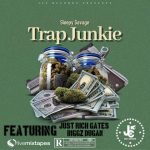


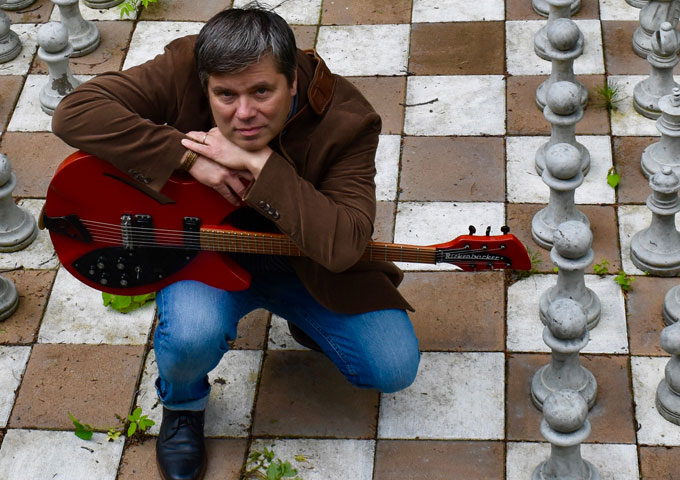
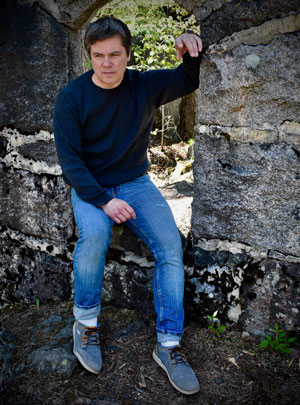
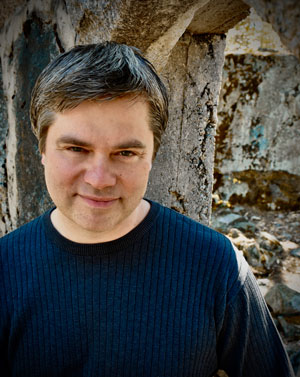
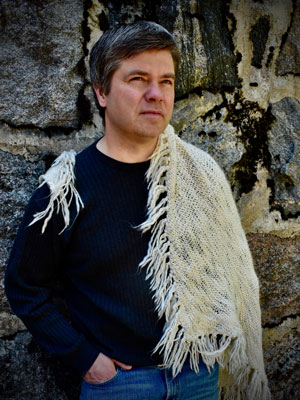
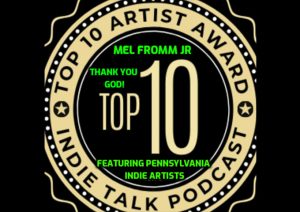
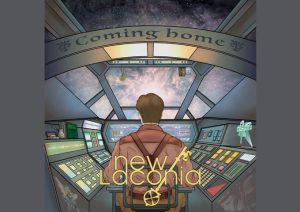
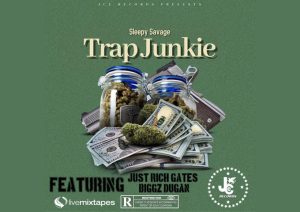

More Stories
INTERVIEW with Mel Fromm Jr.: The Sonic Visionary Redefining Indie Music on a Global Stage
Sarah Herrera Unfiltered: The Final Interview from Punk’s Most Reluctant Legend
“Spiritual Warfare”: Silent Tha Soldier’s Raw Truths and the Battle for Your Soul